
By Vera Keller, RefugePoint Family Reunification Expert and UNHCR Europe Coordinator for Family Reunification
The number of displaced people has increased significantly in recent years. In 2022, UNHCR recorded the largest yearly increase ever in number of refugees. By mid-2023 the number of forcibly displaced people worldwide had reached an alarming number of more than 110 million.
This increase in forced displacement also leads to an increased number of separated family members across borders. When forced to flee, refugee families are often torn apart and remain separated for years. Prolonged separation from family members can increase protection risks and has devastating consequences on the well-being of refugees. The need to reunite with separated family members is often reported to be one of the most pressing concerns for people on the move and one of the key drivers for unsafe onward movement.
In the last few years, in light of increasing numbers of displaced persons, the EU has repeatedly declared states of emergency in border areas, constructed border barriers, and enacted legal amendments restricting access to asylum. Refugees and their family members continue to face an increasing number of legal and administrative barriers in access to family reunification procedures. Those administrative barriers include strict documentation requirements to prove identity and family relations, financial requirements, and other related costs, as well as practical obstacles such as limited presence and capacity at embassies and consulates.
In various European countries, waiting times for embassy appointments and processing times for applications can amount to several years. Through legal amendments, profiles of eligible family members have been restricted and waiting times and deadlines have been imposed, producing further barriers for separated family members.
Several European countries continue to refer refugees or their family members to the authorities of their country of origin to obtain documentation and evidence, ignoring the fact that refugees no longer enjoy the protection of their country of origin, and that reaching out to its authorities might put them or their family members at risk of persecution.
Access to family reunification is a positive right. The principle of family unity is enshrined in international and European law and states must ensure that family life be free from arbitrary, unlawful, and discriminatory interference. The legal frameworks and standing jurisprudence on the right to family life of the European Court of Human Rights require Member States to give effect to the right to family life and family unity for refugee families through flexible, prompt and effective access to family reunification.
To this end and to reduce the risk of prolonged family separation, irregular and unsafe movement, and heightened protection risks, European States must ensure that family reunification procedures for all refugees are flexible, effective, and take into consideration the experiences of people on the move, including the risk of refoulement.
Family members of recognized refugees are also refugees, either at their own right or derivative of their family member, officially recognized as a refugee. Procedural requirements must be adapted to their circumstances, vulnerabilities, and other safety concerns.
More concretely, this means that states have to refrain from referring refugees or their family members to the authorities of the country they fled from. They should waive fees for administrative assistance that refugees are often unable to pay. States must provide information to enable people on the move to make informed decisions on their eligibility and options and adopt flexible procedures for receiving and processing visa applications. They should advance cooperation between diplomatic representations and increase the availability and accessibility of diplomatic services so refugees and family members can approach services in a safe and accessible manner. More online services should be provided that can be accessed from anywhere to limit the requirement to appear in person at diplomatic representations, especially in cases where financial, administrative, or security concerns prevail.
To take into due consideration the lived realities of people on the move and the fact that refugees might have limited access to documentation and verification services and may be unable to reach out to their country of origin in a safe manner, procedures should be flexible and evidentiary requirements should be lowered to remove obstacles and ensure effective access to family reunification.
We have seen that a flexible approach that enables self-determined and safe movement is possible. The Ukraine emergency displaced more than 7.6 million refugees across Europe in its first six months and with 78% of respondents having been separated from immediate family members, family separation was a defining feature of this refugee crisis.
Nevertheless, UNHCR observed only a small number of obstacles in family reunification faced by refugees after having fled Ukraine. This was partly due to the visa waiver applicable to Ukrainian nationals in most EU countries. In addition, through the activation of the Temporary Protection Directive, people fleeing Ukraine were able to continue onward movement through the relevant countries and were able to reunite with their family members spontaneously.
States showed flexibility in the acceptance of documentation and when applying for temporary protection, family members had an individual right to residency. The response showed that effective provision of information, freedom of movement and flexibility in documentation requirements enable self-determined movement and are the most crucial features in ensuring refugees are able to join family members in a safe manner as soon as possible. For EU countries to ensure the protection of the right to family unity, this approach must be applied to other responses as well.
Sources:
1. UNHCR Global Trends 2022, Global Trends | UNHCR.
2. UNHCR Refugee Data Finder, unhcr.org/refugee-statistics/.
3. UNHCR, The implementation of the Temporary Protection Directive: Six months on, October 2022, Document – THE IMPLEMENTATION OF THE TEMPORARY PROTECTION DIRECTIVE – SIX MONTHS ON (unhcr.org).
Cover: Samira (left) and her son Omer (right) reuniting at Vancouver Airport in Canada after seven years apart. The two were forcibly separated while fleeing war in Sudan in 2016.

By Vera Keller, RefugePoint Family Reunification Expert and UNHCR Europe Coordinator for Family Reunification
The number of displaced people has increased significantly in recent years. In 2022, UNHCR recorded the largest yearly increase ever in number of refugees. By mid-2023 the number of forcibly displaced people worldwide had reached an alarming number of more than 110 million.
This increase in forced displacement also leads to an increased number of separated family members across borders. When forced to flee, refugee families are often torn apart and remain separated for years. Prolonged separation from family members can increase protection risks and has devastating consequences on the well-being of refugees. The need to reunite with separated family members is often reported to be one of the most pressing concerns for people on the move and one of the key drivers for unsafe onward movement.
In the last few years, in light of increasing numbers of displaced persons, the EU has repeatedly declared states of emergency in border areas, constructed border barriers, and enacted legal amendments restricting access to asylum. Refugees and their family members continue to face an increasing number of legal and administrative barriers in access to family reunification procedures. Those administrative barriers include strict documentation requirements to prove identity and family relations, financial requirements, and other related costs, as well as practical obstacles such as limited presence and capacity at embassies and consulates.
In various European countries, waiting times for embassy appointments and processing times for applications can amount to several years. Through legal amendments, profiles of eligible family members have been restricted and waiting times and deadlines have been imposed, producing further barriers for separated family members.
Several European countries continue to refer refugees or their family members to the authorities of their country of origin to obtain documentation and evidence, ignoring the fact that refugees no longer enjoy the protection of their country of origin, and that reaching out to its authorities might put them or their family members at risk of persecution.
Access to family reunification is a positive right. The principle of family unity is enshrined in international and European law and states must ensure that family life be free from arbitrary, unlawful, and discriminatory interference. The legal frameworks and standing jurisprudence on the right to family life of the European Court of Human Rights require Member States to give effect to the right to family life and family unity for refugee families through flexible, prompt and effective access to family reunification.
To this end and to reduce the risk of prolonged family separation, irregular and unsafe movement, and heightened protection risks, European States must ensure that family reunification procedures for all refugees are flexible, effective, and take into consideration the experiences of people on the move, including the risk of refoulement.
Family members of recognized refugees are also refugees, either at their own right or derivative of their family member, officially recognized as a refugee. Procedural requirements must be adapted to their circumstances, vulnerabilities, and other safety concerns.
More concretely, this means that states have to refrain from referring refugees or their family members to the authorities of the country they fled from. They should waive fees for administrative assistance that refugees are often unable to pay. States must provide information to enable people on the move to make informed decisions on their eligibility and options and adopt flexible procedures for receiving and processing visa applications. They should advance cooperation between diplomatic representations and increase the availability and accessibility of diplomatic services so refugees and family members can approach services in a safe and accessible manner. More online services should be provided that can be accessed from anywhere to limit the requirement to appear in person at diplomatic representations, especially in cases where financial, administrative, or security concerns prevail.
To take into due consideration the lived realities of people on the move and the fact that refugees might have limited access to documentation and verification services and may be unable to reach out to their country of origin in a safe manner, procedures should be flexible and evidentiary requirements should be lowered to remove obstacles and ensure effective access to family reunification.
We have seen that a flexible approach that enables self-determined and safe movement is possible. The Ukraine emergency displaced more than 7.6 million refugees across Europe in its first six months and with 78% of respondents having been separated from immediate family members, family separation was a defining feature of this refugee crisis.
Nevertheless, UNHCR observed only a small number of obstacles in family reunification faced by refugees after having fled Ukraine. This was partly due to the visa waiver applicable to Ukrainian nationals in most EU countries. In addition, through the activation of the Temporary Protection Directive, people fleeing Ukraine were able to continue onward movement through the relevant countries and were able to reunite with their family members spontaneously.
States showed flexibility in the acceptance of documentation and when applying for temporary protection, family members had an individual right to residency. The response showed that effective provision of information, freedom of movement and flexibility in documentation requirements enable self-determined movement and are the most crucial features in ensuring refugees are able to join family members in a safe manner as soon as possible. For EU countries to ensure the protection of the right to family unity, this approach must be applied to other responses as well.
Sources:
1. UNHCR Global Trends 2022, Global Trends | UNHCR.
2. UNHCR Refugee Data Finder, unhcr.org/refugee-statistics/.
3. UNHCR, The implementation of the Temporary Protection Directive: Six months on, October 2022, Document – THE IMPLEMENTATION OF THE TEMPORARY PROTECTION DIRECTIVE – SIX MONTHS ON (unhcr.org).
Cover: Samira (left) and her son Omer (right) reuniting at Vancouver Airport in Canada after seven years apart. The two were forcibly separated while fleeing war in Sudan in 2016.
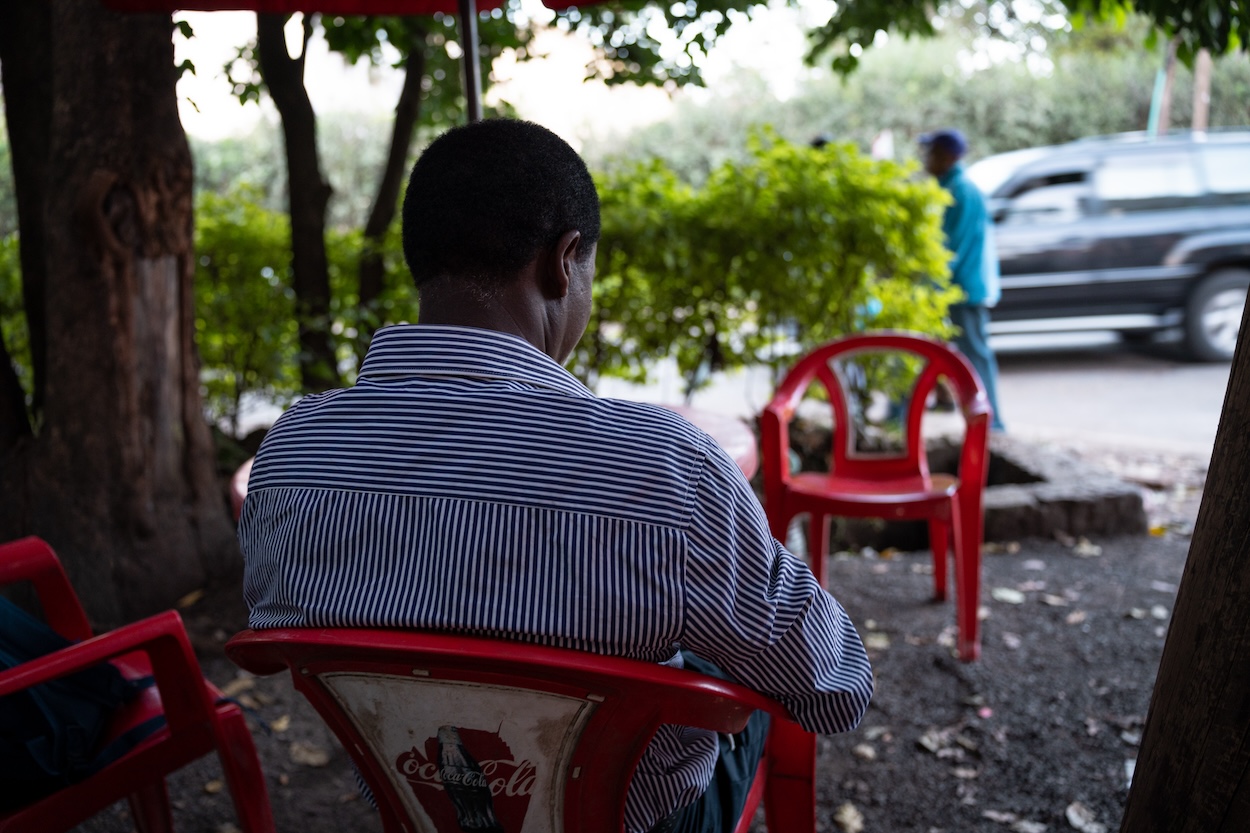


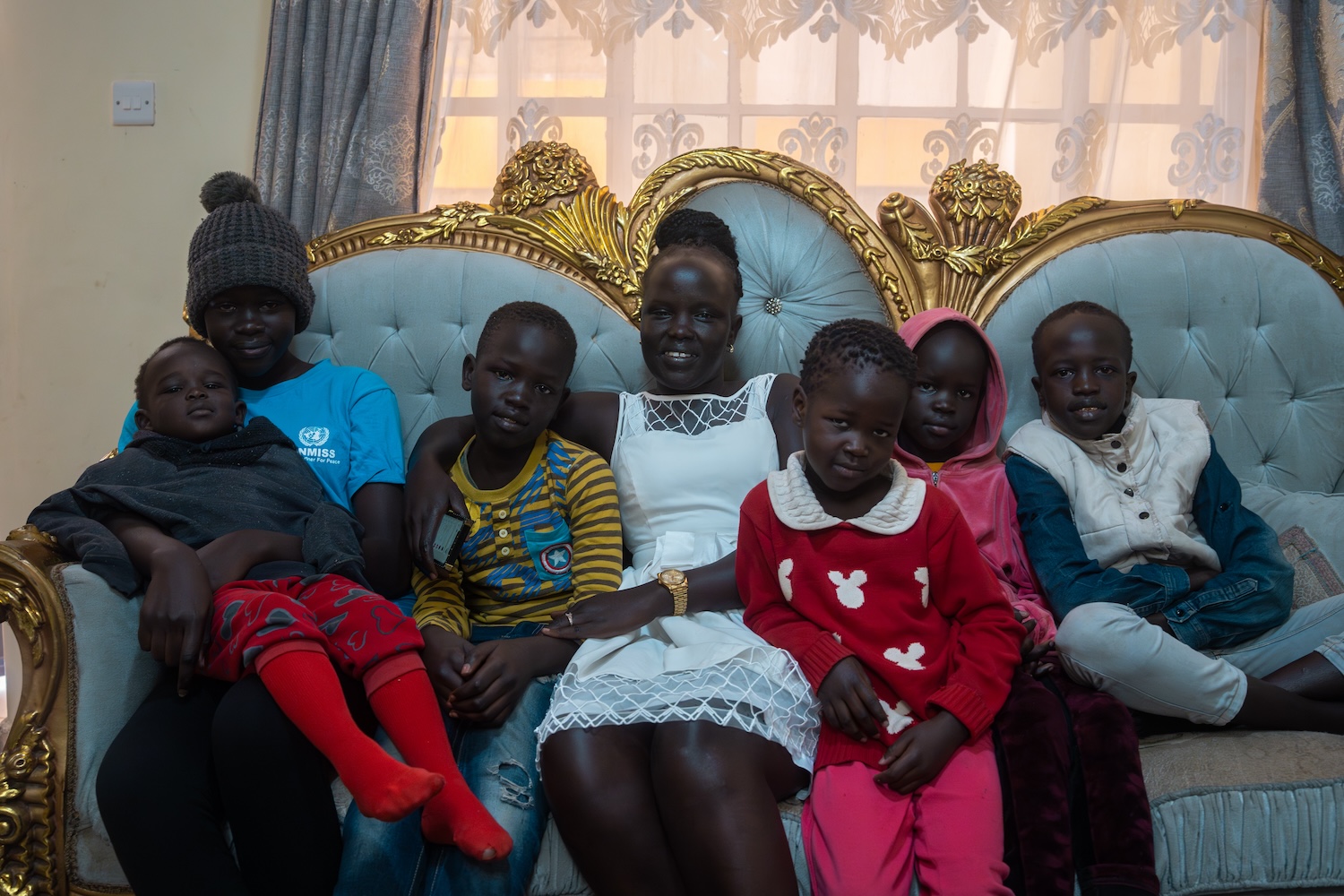

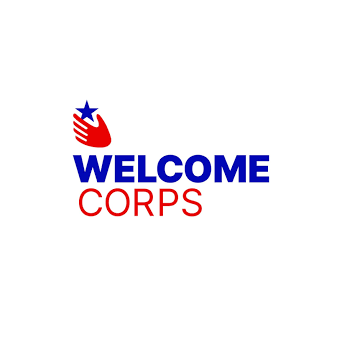



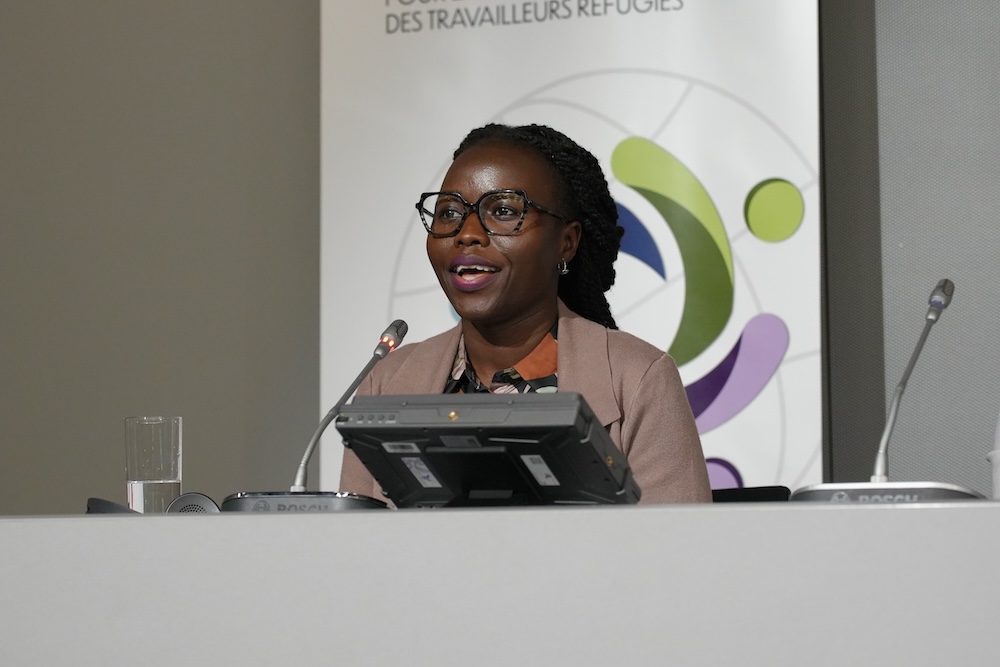
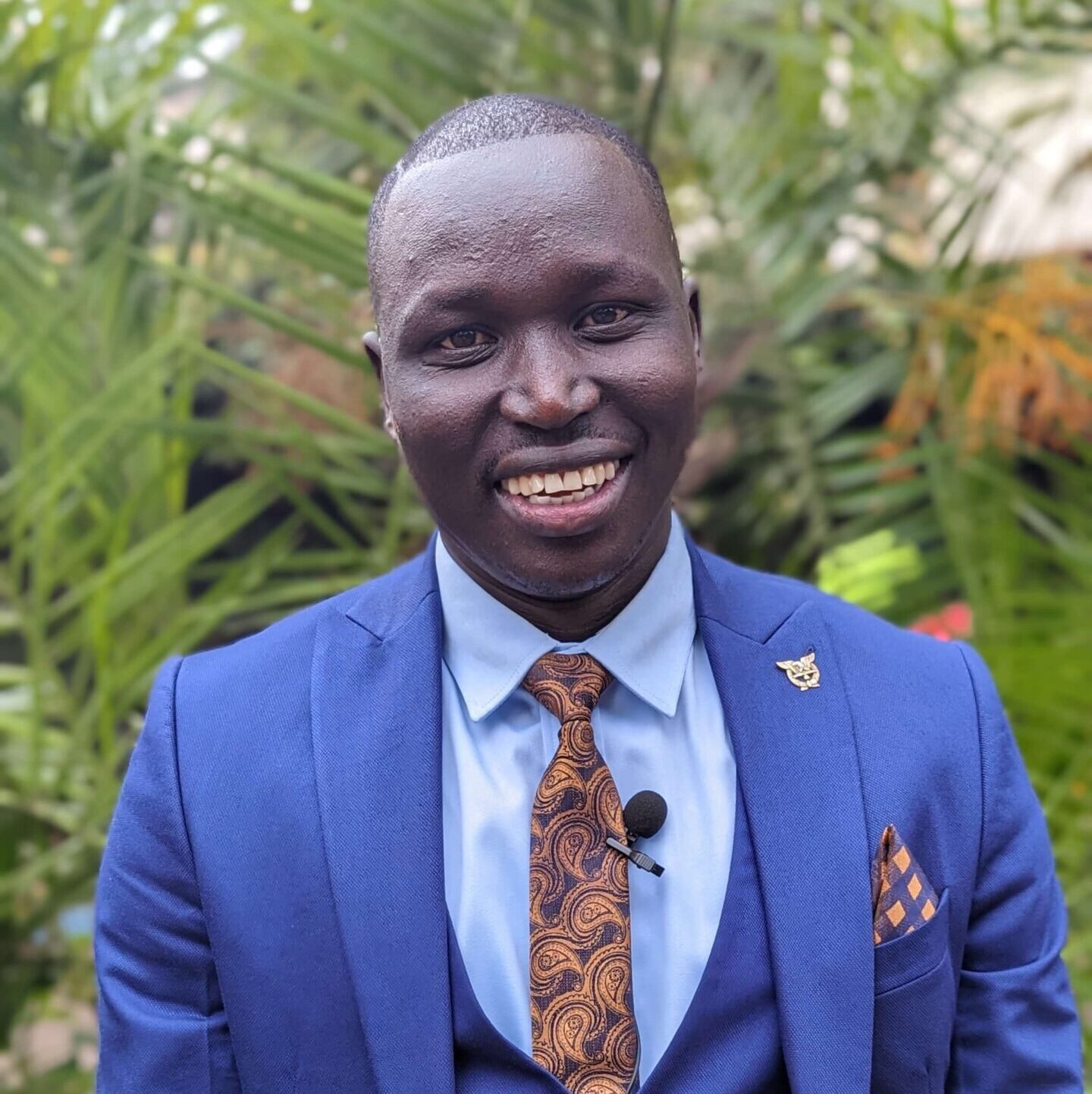


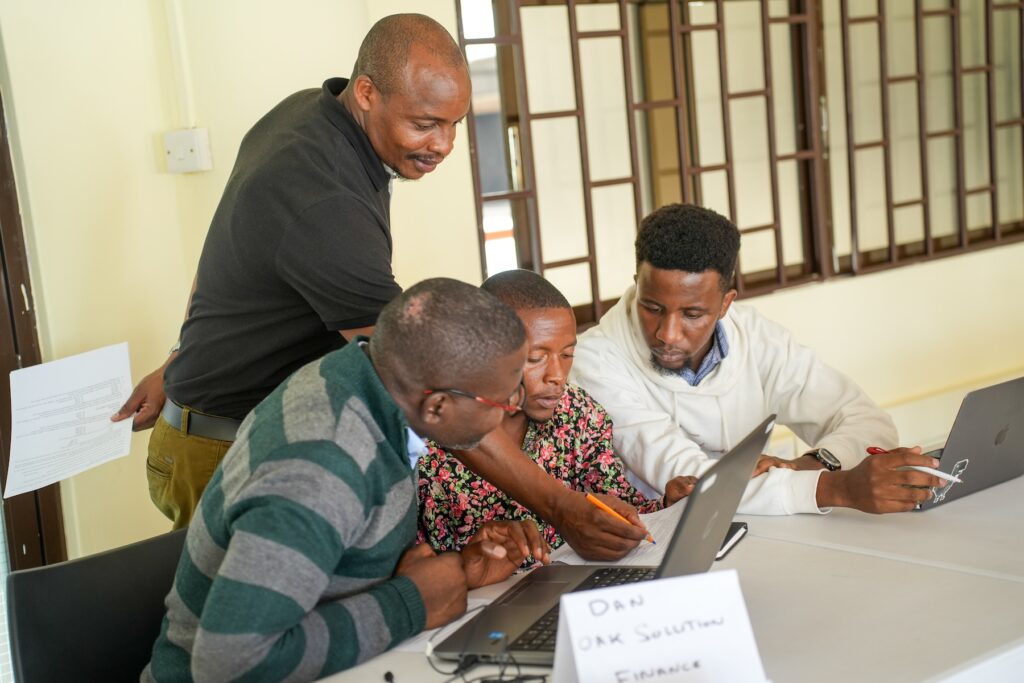 Staff from Oak Solutions, a refugee-led organization based in Nairobi, Kenya, engaged in finance training at RefugePoint’s Kenya office. Oak Solutions was one of several RLOs that received a grant from RefugePoint.
Staff from Oak Solutions, a refugee-led organization based in Nairobi, Kenya, engaged in finance training at RefugePoint’s Kenya office. Oak Solutions was one of several RLOs that received a grant from RefugePoint.